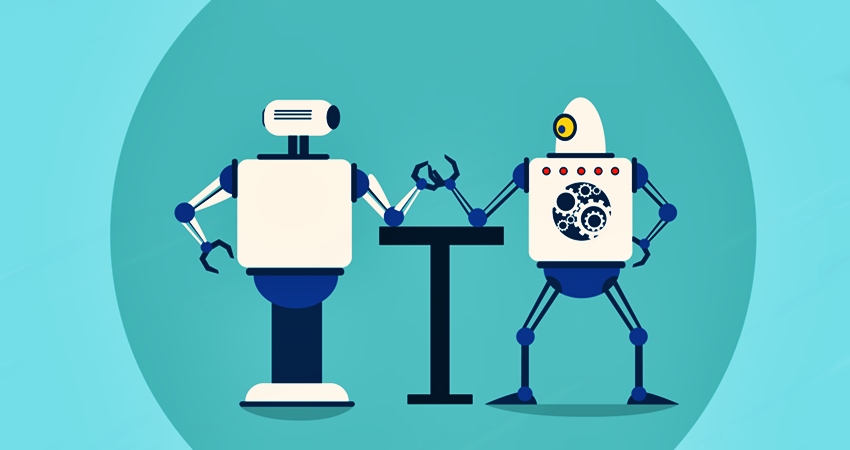Much as industrial robots have taken over manufacturing processes, AI and RPA have started to be used in knowledgeable tasks and processes.
Often, these two terms are used interchangeably. However, these terms mean different and are used in varying levels of work.
Why the confusion between the two?
People generally do not have a good grasp on what is based on AI and whatnot.
Almost everything is in some form a kind of automation. Automation & AI are widespread across all the industrial sectors, both; together and individually. That fine line between them is not really paid attention to.
Let’s understand the exact meaning of these two technologies before differentiating them.
Automation
We see automation everywhere. Automation is what lets us transfer funds to and from bank accounts in a matter of a few seconds.
The fire-fighting system is another case of automation. It automatically turns on the alarm and water sprinklers as soon as the sensors detect smoke.
The core purpose of automation is to let machines perform any repetitive, monotonous tasks without human interference.
Thus, automation refers to any predefined task that has an “if X then Y” format. For a set of predefined input, there is a predefined output.
Automating such tasks makes the whole process more efficient than having humans do the same thereby eliminating the risk of human error in the process.
It also helps in increasing the efficiency and productivity of the human workforce.
Artificial Intelligence
We all have interacted with a chatbot that we see on websites at some point or the other in time. We can easily say that it’s the most common example of artificial intelligence.
The entire point of AI systems is to simulate human behavior, i.e., mimic how humans say, think, and do.
AI systems are computer programs that need to be trained rather than simply programmed. These systems identify the patterns from the set of given data and try to mimic the same for future tasks in hand.
AI systems are continually learning from the data that we feed or from each problem it solves improving their efficiency and accuracy with time.
Difference Between automation and AI
To put in simple terms, we can say that automation is the “doer” and AI is the “thinker.” Automated systems collect data, while AI systems analyze and understand it.
Automation is concerned with getting the tasks done while AI is concerned about what is to be done. For example, while automation is good to auto-fill forms, AI is required to scan the email and decide what data goes where on the form.
The following table illustrates compares the pros and cons of automation and AI.
| Automation | Artificial Intelligence |
|---|---|
| + Standardized Process | + Data Insights |
| + Reduction in redundancy | + Learning Capabilities |
| – Limited capabilities | – Significant initial investment |
| + The focus is on Process automation | + The focus is to fulfill customer requirements |
| + Generally used in Back office, administrative repetitive tasks | + Generally used in user-centric and conversation driven processes |
AI in Automation Testing
Automation testing is a software testing method to test and compare the expected outcome with the actual outcome obtained as a result of tests. AI in test automation is used in continuous integration/continuous delivery pipelines.
While testing large software applications, it becomes humanly impossible to try and find patterns in the test results to rerun the tests on that particular functionality of the software.
Here AI comes into the picture. Test automation refers to the use of software to automate the test processes that are already in place.
With the use of AI, test automation software is able to detect patterns in the data obtained from the previous test results and design further tests accordingly.
You May Also Like to Read:
Future Scope and Predictions for RPA (Robotic Process Automation)


